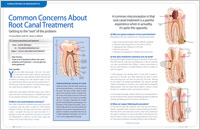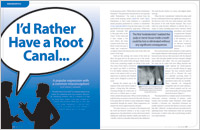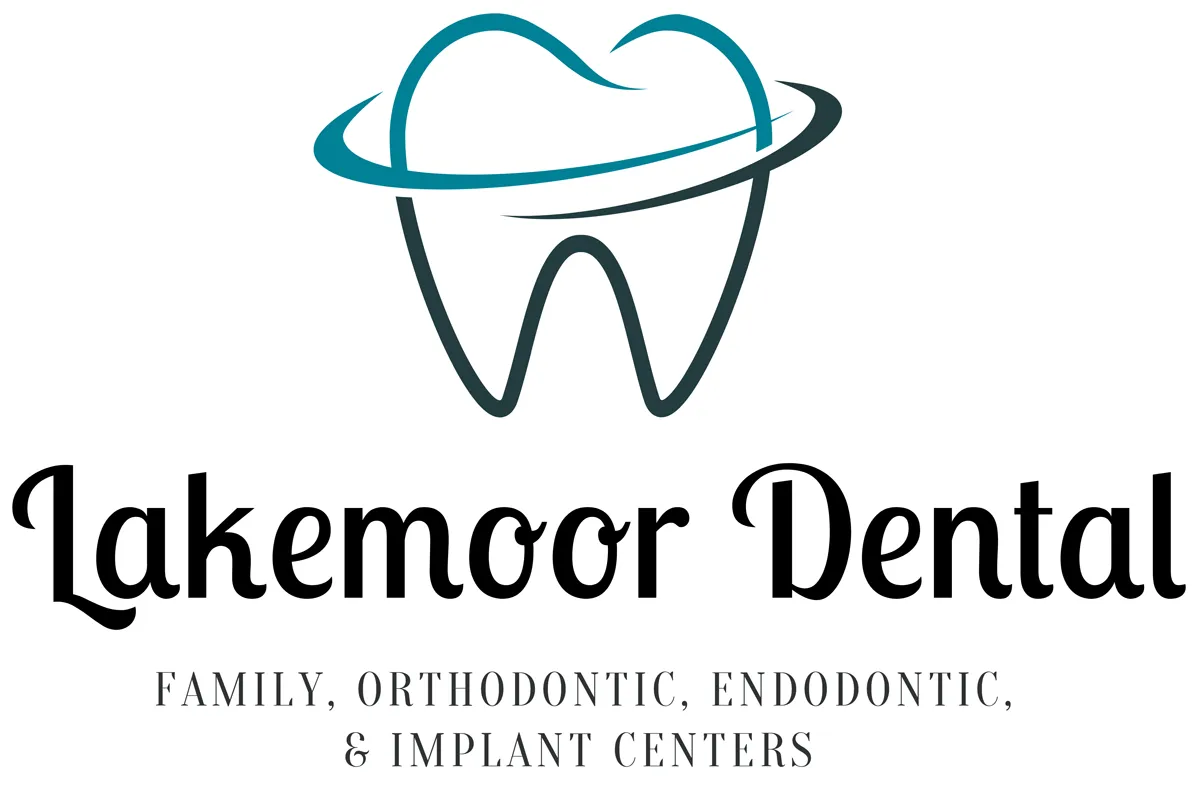
TO OUR PRECIOUS PATIENTS. WE ARE 100% AVAILABLE TO SERVE YOU WITH PPE AND N95 MASKS FOR YOUR SAFETY.
In today's environment, many practitioner are often aggressive and hasty with extracting teeth and replacing them with implants. At Lakemoor Dental Root Canal and Implant Specialist, you will receive an objective viewpoint and assessment of the restorability of your tooth. I am always far more interested in saving your tooth than extracting it but in some cases replacement of teeth with implants is more predictable and advantages in the long-term. When I became an endodontist, I took an oath to save any tooth that could be saved and with the advanced procedures and techniques in our offices, you can rest assured that I will and I can save teeth that other practioners deem restorable. For an expert and objective viewpoint, let us give you our opinion. Further, we have incorporated Ozone disinfection and laser sterilization technologies into our everyday endodontic procedures. This is why our procedures will be more predictable than other offices that do not employ Ozone Sterilization. In fact, in root canal revisions or retreatments, there are often more tenacious bacteria, yeast and fungi that are not predictably removed with conventional treatment modalities. This is where our Ozone and Laser technologies make us clinical leaders in endodontic care.
Root Canals F.A.Q
The Root Canal Specialist
"The Root Canal Specialist" is a dentist with several years of extra training. Often referred to as an endodontist, "The Root Canal Specialist" has a very comprehensive knowledge of the root canal space and all aspects of root canal treatment. This is why most patients are referred to the "The Root Canal Specialist" to revise, (retreat) in other words, redo poor and/or infected root canal treatments. "The Root Canal System" is a very complex, convoluted, multifaceted and often mis-understood region of the tooth. This is why there is a specialty of dentistry solely devoted to treatment of this space, called endodontics.
"The Root Canal Specialist" is also very qualified and often relied upon to relieve patients of severe, chronic and intolerable pain. They are trained to handle severe infections, swelling, abscesses, fractured teeth and trauma to the dental and alveolar structures of the face. Endodontists are also highly trained in microsurgical procedures concerning the jaws. But ultimately, "The Root Canal Specialists" are masters of diagnosis and treatment of oral pain. Endodontists are the one true advocate for the retention and restoration of your teeth.
If you have been told you need root canal treatment, you may be feeling a bit nervous. Not to worry — treating root canal problems is a routine part of dentistry that can relieve certain kinds of tooth pain and help your teeth last longer. As you learn more about this beneficial procedure, you will understand why it's needed — and how it will leave you in far better shape than you were. Here are some answers to frequently asked questions.

What is a root canal?
Dentists use the term “root canal” in referring to the tiny, narrow passageways that branch from a central, hollow space in your tooth (called the pulp chamber) down to the ends of the tooth roots. The term can also be used as a shorthand for “root canal treatment” — that is, the procedure used to save the tooth if the soft tissue deep inside of it (called pulp) becomes acutely inflamed or infected.
Why do I need root canal treatment?
If tooth pulp becomes acutely inflamed or infected because of decay or injury, the tissue will need to be removed in order to save the tooth and stop the infection from spreading. As an adult, you don't actually need the pulp — its primary use is to aid in tooth development during childhood.
Is there an alternative?
You could have the whole tooth extracted, but it's always better to try to save it — especially since root canal treatment is routine and has a very high success rate (over 90%). Saving the tooth can prevent other troubles from occurring later on; these could include bite problems from teeth shifting position, difficulty eating, and loss of jawbone volume and density.
Is root canal treatment painful?
The procedure normally causes no more discomfort that a filling would. Root canal treatment may have a bad reputation, but it is undeserved; in this case it's the disease that's to blame and not the cure. In other words, the infections that make the treatment necessary in the first place are often painful because they are inflaming tissue that has lots of nerves and therefore is very sensitive. Root canal treatment actually relieves this pain!
What will happen during the procedure?
After numbing the area, a tiny hole in the crown (top) of your tooth is made to access the pulp chamber and canals. The diseased tissue is removed, and the pulp chamber and the canal(s) are disinfected all the way to the root end(s). Teeth in the front of the mouth have one root and generally one canal; back teeth have two or three roots and generally three or four canals. Those canals and the pulp chamber are filled with an inert, biocompatible material, and sealed with adhesive cement. The access hole will receive a temporary filling.
What will happen afterward?
Your tooth may feel sensitive for a few days, but any discomfort can usually be relieved with over-the-counter pain medication or anti-inflammatories like ibuprofen. You will be instructed to avoid chewing on that tooth until it receives its permanent filling, which can be placed a few days later. Depending on how damaged the tooth was to begin with, it may need a full-coverage crown. Those options will be discussed with you.
How can I avoid the need for root canal treatment in the future?
Keep your teeth decay-free by brushing and flossing every day. Eat a healthy diet low in sugar and avoid acidic beverages such as soda. Have regular professional cleanings and exams. And if you're active in sports, consider ordering a custom-made mouthguard to protect your teeth from injury.
Are you interested in a Root Canal? Contact Lakemoor Dental at their
Lakemoor, Hainesville, Arlington Heights, or Elk Grove Village, IL location for more information!
Related Articles

Common Concerns About Root Canal Treatment The term “root canal” can send shivers down many a spine. However, preconceived notions that root canal treatment is filled with pain and discomfort are nothing more than outdated myths. In fact, root canal treatment doesn't cause pain but actually relieves it... Read Article

“I'd Rather Have a Root Canal...” We've all heard that expression, but how true is it? Is root canal treatment really something to be feared, or does it actually offer relief? In this article, a common misconception is demystified. Get the real story about this much maligned procedure that eases pain, rather than causes it... Read Article

Tooth Pain? Don't Wait! Pain is a protective response that informs the body that something is wrong. Tooth pain, specifically, is caused by a reaction of the nerves inside a tooth's pulp chamber, with the severity dependent upon the type and degree of the stimulus. This article gives some examples of pain symptoms and their possible causes... Read Article

